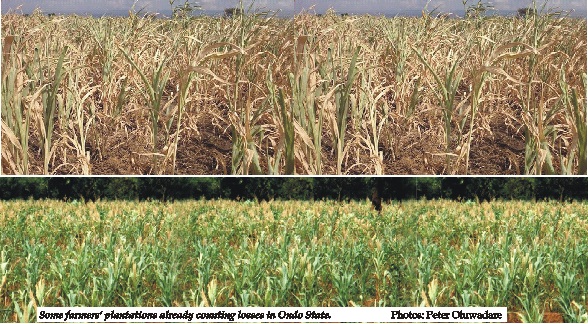Escalating culture of corporate begging
By Afolabi Aribigbola
|
The growing incidence and influx of beggars into major cities of Nigeria has become a source of concern to many Nigerians in recent times. Of more worrisome is the advent of corporate professional beggars. This group of beggars most of the times are well dressed, young, vibrant, and abled bodied individuals that go around soliciting for money under one pretense or the order. Some of the reasons usually put forward by these corporate beggars might include the loss of a spouse, parents, sickness and or lack of food for the family. The above scenarios are at variance with the Yoruba culture and tradition that forbid begging.
In the olden days, it was a taboo for a Yoruba man or woman to be seen begging for money. It was an act reserved for the physically challenged persons and lazy individuals in the society. Nowadays, as one traverses the length and breadth of our major cities, it is a common sight to be confronted by avalanche of beggars swooping on one requesting for money to feed. This group has recently been joined by angry and weird looking touts exhibiting all manners of frightening behaviour to instill fear on people while demanding for money. This trend is a reversal of the age-old Yoruba tradition that forbids begging among the people especially in public functions. Besides, other sets of beggars have devised means of begging for money by text messages and other social media outlets such as Facebook and WhatsApp. It is common to receive text messages from people begging for assistance without knowing them and without been unable to verify the authenticity of their claims.
This emerging pattern of corporate begging is of serious concern because it is capable or has the tendency to discourage people from working especially by the teaming youth of the Nigerian population. It is also capable of dissuading good spirited individuals from assisting the real poor that required assistance and support. Again, many criminal minded individuals often appear as beggars to defraud unsuspecting members of the public. Some criminals appear as beggars during the day to survey surroundings of people so that they can strike at night and any convenient time. Others have used corporate begging decour to lure people to criminals who use the opportunity to rob their victims of money and other valuables.
Indeed, begging and beggars have always been part and parcel of human society. It is of course a global phenomenon that threatens the environment, economic and social survival of humanity. A reflection on the socio-economic situation in Nigeria indicates prevalence and increase in begging and this might have been because of escalating cost of living and high unemployment rate. It has also been argued elsewhere that it debases our social ethos. A school of thought is of the opinion that some of the beggars are most of the times out of their minds; that they are products of drug addiction and abuse.
The issue of more concern is that some policy makers look the other way as if the problem does not exist. If that is the situation, too bad for our society. A Society that has no consideration for the poor and needy cannot prosper. Of course, several reasons have been put forward to account for the rising incidence of begging in our cities. One of them, they argued, is the debilitating and high level of poverty in the land. In other words, many people take to begging because they cannot feed themselves and family. Other reasons include greed and an avenue to extort others. Some will fake sickness requesting urgent surgical operation. A young man came to my house for assistance some months ago requesting for assistance on the ground that he needed to be operated on his anus. The sight he showed was horrible and I quickly parted with some amount of money only to meet him somewhere later with same issue.
Aside the above, several other reasons have been put forward to explain the new wave of professional begging in Nigerian cities. The original and widespread reason in the past had been extreme poverty, where the poor and vulnerable came out for assistance so that they could eat and cloth themselves. Others are as a result of sickness and other forms of disability. In modern times, many of the professional beggars take to begging as a result of greed and attempts to defraud unsuspecting but good spirited members of the public. As a short cut to making money, they feign sickness or generate or fabricate stories to convince passersby so that they can assist them with money. Thus, besides the age-old poverty syndrome, greed and quick rich syndrome seem to have drafted many into what has been termed corporate begging.
The recognition of the negative consequences of unbridled widespread begging motivated societies and government the world over to seek ways to eradicate poverty by assisting the poor and vulnerable members of their society. Therefore, in the more prosperous societies, conscious efforts in terms of policies and actions have been dissipated to assist the poor and vulnerable to the extent that provisions are made for them in form of social support system. These include unemployment benefits, social housing, food coupon among others.
Social support systems are largely unavailable in Nigeria and where available, they are ad-hoc and far between. Therefore, conscious efforts need to be made to address the issue. The creation of a humanitarian ministry though good has not really addressed the problem headlong. Support systems are better at the states and local government levels. There is therefore a need for new initiatives and actions at the federal, state, and local levels to curb the menace. Such efforts should include enlightenment and mobilization of the citizenry on the evils of corporate begging and inculcate on the youths the values of hard work as against begging.
Policies and laws prohibiting street begging should be introduced and faithfully enforced without fear or favour. However, this can only be achieved in a situation where adequate support systems are in place. Otherwise, any efforts to curb or eliminate this obnoxious practice will be an exercise in futility. The present practice of supporting the political class at the expense of the poor majority cannot be expected to promote sustainable development as well as eliminating the retrogressive and backward culture of begging. The states and particularly the local governments being the closest to the people must embrace and take on board the activities of social support systems to assist the poor and needy in Nigeria.









